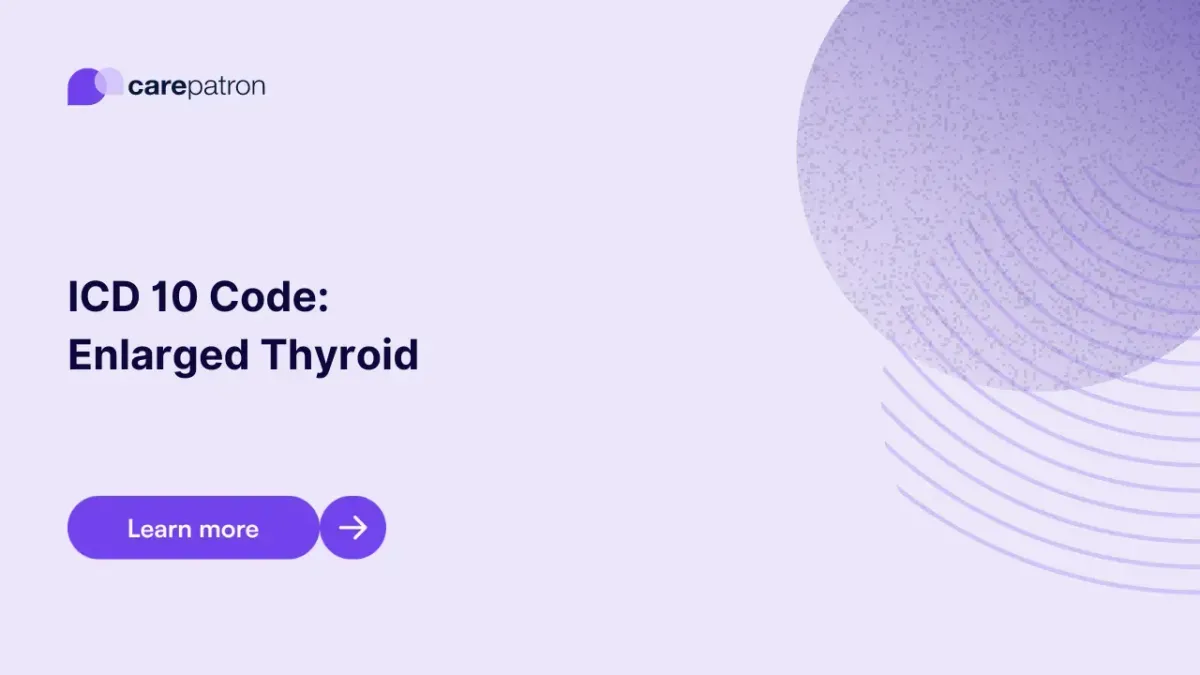
Enlarged Thyroid ICD-10-CM Codes
Read this short guide and learn about enlarged thyroid ICD codes you can use.
Use Code
Commonly asked questions
Most likely not, given that the term goiter refers to it.
Other causes include hypothyroidism, hyperthyroidism, thyroid cancer, Hashimoto’s disease, pregnancy, inflammations, and even Grave’s disease.
Some can be left well alone, and they will go away alone. Some may require specific medications, and the drug will depend on what caused the goiter to emerge in the first place. If the goiter is significantly impacting a person’s breathing, surgery is the best bet. Depending on the treatment, the patient may require thyroid hormone replacement therapy down the line.
EHR and practice management software
Get started for free
*No credit card required
Free
$0/usd
Unlimited clients
Telehealth
1GB of storage
Client portal text
Automated billing and online payments
